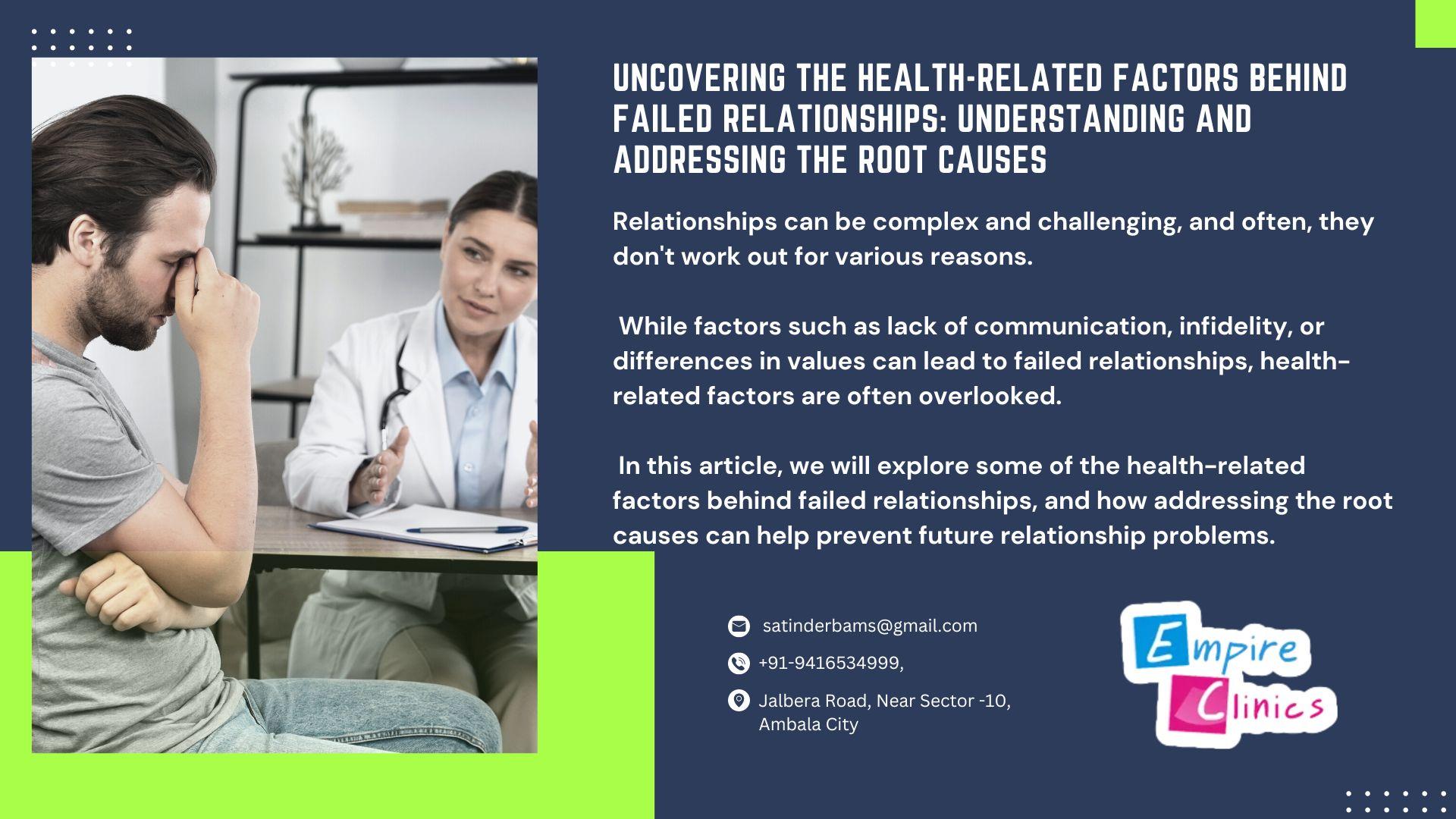Relationships can be complex and challenging, and often, they don't work out for various reasons. While factors such as lack of communication, infidelity, or differences in values can lead to failed relationships, health-related factors are often overlooked. In this article, we will explore some of the health-related factors behind failed relationships, and how addressing the root causes can help prevent future relationship problems.
Mental Health Issues
Mental health issues such as anxiety, depression, and bipolar disorder can have a significant impact on relationships. These conditions can lead to mood swings, emotional instability, and communication difficulties, making it challenging to build and maintain healthy relationships. If left untreated, mental health issues can escalate and cause long-term damage to relationships.
Solution: Seeking professional help, such as therapy or counseling, can help individuals with mental health issues address their symptoms and improve their communication skills. It is essential to communicate openly and honestly with partners about mental health struggles to ensure they are aware and supportive.
Addiction
Addiction to drugs, alcohol, or other substances can lead to destructive behaviors, such as lying, hiding, or neglecting responsibilities, that can damage relationships. It can also lead to financial instability and emotional distress for both partners.
Solution: Seeking professional help to overcome addiction is crucial to prevent damage to relationships. Support groups and therapy can help individuals address the underlying causes of addiction and build healthy coping mechanisms to maintain long-term sobriety.
Physical Health Issues
Chronic physical health issues such as chronic pain, diabetes, or heart disease can lead to increased stress and strain on relationships. It can lead to difficulties with sexual function, physical activity, and emotional connection.
Solution: Open communication with partners about physical health issues is essential to address challenges together. Seeking medical care and implementing healthy lifestyle changes such as exercise and a balanced diet can improve physical health and enhance relationship quality.
Sleep Disorders
Sleep disorders such as insomnia or sleep apnea can lead to fatigue, mood swings, and irritability, making it challenging to maintain healthy relationships. It can also impact sexual function and emotional connection.
Solution: Seeking medical help to address sleep disorders is crucial. Healthy sleep habits such as sticking to a regular sleep schedule and avoiding electronics before bedtime can also help improve sleep quality.
Self-Care Neglect
Neglecting self-care, such as lack of exercise, poor diet, or inadequate sleep, can impact physical and mental health, leading to stress, anxiety, and depression. It can also impact sexual function and emotional connection, leading to strain on relationships.
Solution: Practicing self-care is essential for maintaining physical and mental health. Healthy habits such as exercise, a balanced diet, and sufficient sleep can lead to improved mood, energy, and overall health, enhancing relationship quality.
Conclusion
Health-related factors such as mental health issues, addiction, physical health issues, sleep disorders, and self-care neglect can have a significant impact on relationships. Understanding and addressing these root causes can help prevent future relationship problems. Seeking professional help, practicing healthy habits, and open communication with partners are key steps towards building and maintaining healthy relationships.







